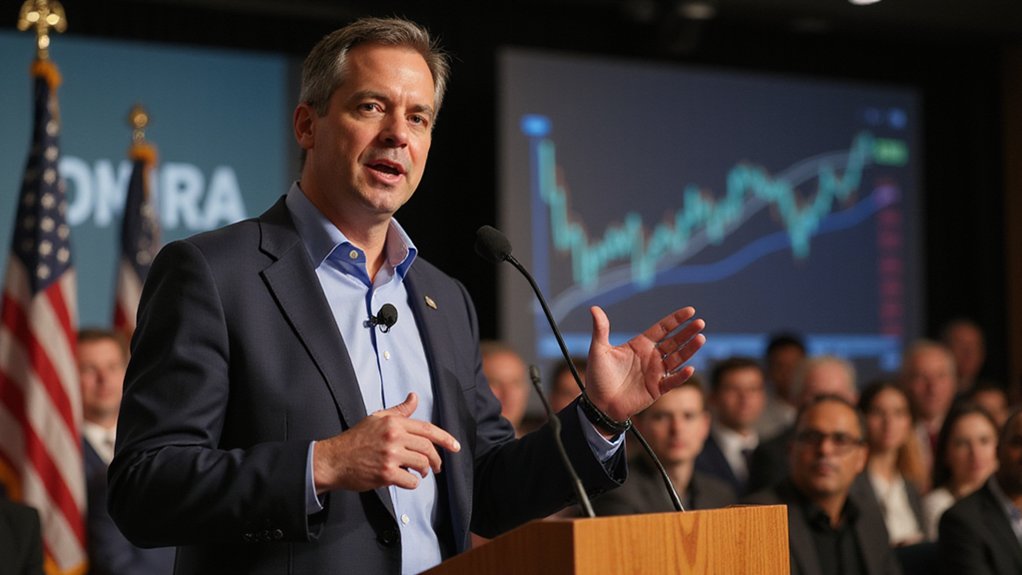Kenya’s burgeoning cryptocurrency sector faces an unusual predicament: the very regulatory framework designed to govern digital asset providers may itself be governed by the industry’s largest player.
The Virtual Asset Service Providers (VASP) Bill, currently under development, has sparked controversy over Binance’s influence through its affiliated lobby group, the Virtual Asset Coalition (VAC). What appears to be regulatory participation reveals itself as something more calculated—VAC operates with questionable independence while receiving $6,000 monthly per country from Binance for policy advocacy, according to confidential agreements.
The draft legislation’s most eyebrow-raising provision places VAC directly on the regulatory board overseeing crypto activities. This arrangement fundamentally grants Binance a seat at the table where rules governing its own operations will be decided—a scenario that would make even seasoned regulatory capture theorists pause.
Local cryptocurrency startups have voiced alarm over what they characterize as Binance’s “stealthy regulatory capture.” Their concerns center on the fundamental fairness of allowing a single exchange’s proxy to shape regulations affecting all market participants. The potential for monopolistic outcomes becomes apparent when considering Binance’s vast resources against Kenya’s nascent crypto ecosystem.
Binance’s proxy influence threatens to create an uneven playing field against Kenya’s emerging cryptocurrency startups through regulatory board positioning.
The proposed regulatory structure involves five agencies: the Central Bank, Capital Markets Authority, Competition Authority, Communications Authority, and Data Protection Commissioner. While this multi-agency approach ostensibly promotes balanced oversight, VAC’s board inclusion threatens to undermine the framework’s intended independence.
Critics question whether this arrangement violates constitutional principles of regulatory impartiality. The prospect of rules being tailored to favor one exchange over local competitors raises legitimate competition concerns, particularly given Binance’s established pattern of similar regulatory involvement in Rwanda.
The VASP Bill mandates licensing requirements, anti-money laundering compliance, and local physical presence for all digital asset providers. However, stakeholders increasingly scrutinize whether these requirements will be enforced equitably or shaped to benefit those with regulatory board representation.
This regulatory capture scenario contrasts sharply with decentralized finance (DeFi) principles, which eliminate intermediaries and prioritize open access through blockchain-based smart contracts rather than centralized control by dominant market players.
As Kenya’s crypto market continues expanding, the regulatory framework’s integrity becomes paramount. The question remains whether policymakers will recognize the inherent conflict in allowing regulated entities to regulate themselves—or whether market concentration will proceed under the guise of legitimate governance.









